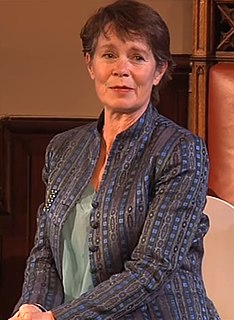A Quote by Jeffrey Eugenides
Lux’s frequent forged excuses from phys. Ed. She always used the same method, faking the rigid t’s and b’s of her mother’s signature and then, to distinguish her own handwriting, penning her signature, Lux Lisbon, below, the two beseeching L’s reaching out for each other over the ditch of the u and barbed-wire x.
Related Quotes
My mother didn't feel sorry for herself, she was left with no child support, no alimony at a very young age, with a child to raise, a high school education and she just figured it out. She didn't complain, she didn't rely upon government, she relied upon her own skill set, her own self confidence, her own drive in moxie and her own duty to me and her and she relied upon her family and her faith.
My grandmother always used to wear this English perfume called Tuberose and then she died and then I dated this girl who wore the same thing. Every time I hung out with her, I could only think of my recently deceased grandmother. So sometimes a signature scent can be good and sometimes it can be bad.
For me accessories create and define a woman's personal style. The bag she carries, the watch on her wrist, her jewelry, her sunglasses, her shoes all define a look that is her signature. For Spring 2014, my accessory collections are about a clean, graphic boldness creating a new dimension redefining modern classics.
Where woman has taken her place in business she has found her method ready-shaped for her, and following that, she does her work,if with a certain amount of monotony, yet without undue fatigue. Her hours are fixed, and as a rule she gets needful change of scene as she goes to her business and returns to her home or the place where she lives. But the "home- maker" has not, nor can she have, any such change, and her hours are always from the rising of the sun beyond the going down of the same.
The good enough mother, owing to her deep empathy with her infant, reflects in her face his feelings; this is why he sees himselfin her face as if in a mirror and finds himself as he sees himself in her. The not good enough mother fails to reflect the infant's feelings in her face because she is too preoccupied with her own concerns, such as her worries over whether she is doing right by her child, her anxiety that she might fail him.
One minute she acts like she wants to be with me and I'm the one rejecting her. The next, she's got this barbed wire fence and barking dogs around her, like I can't even ask her the simplest questions." "And here I was assuming you didn't care about her." Stabbing his fingers through his hair, he groaned, "I don't!" "And you make it perfectly clear." Men. Idiots.
Her [Eleanor Roosevelt] father was the love of her life. Her father always made her feel wanted, made her feel loved, where her mother made her feel, you know, unloved, judged harshly, never up to par. And she was her father's favorite, and her mother's unfavorite. So her father was the man that she went to for comfort in her imaginings.
The adolescent does not develop her identity and individuality by moving outside her family. She is not triggered by some magic unconscious dynamic whereby she rejects her family in favour of her peers or of a larger society.... She continues to develop in relation to her parents. Her mother continues to have more influence over her than either her father or her friends.
If I look back, my mother was always out. I can remember the perfume and her scarlet chiffon dress and crystal beads, going to a party. She used to play her violin at restaurants later on in life and at old people's homes. She loved the races, which she used to take me to as a child: our carpets were bought with her winnings. Loved her chickens.
Sometimes we adopt certain beliefs when we're children and use them automatically when we become adults, without ever checking them out against reality. This brings to mind the story of the woman who always cut off the end of the turkey when she put it in the oven. Her daughter asked her why, and her mother responded, "I don't know. My mother always did it." Then she went and asked her mother, who said, "I don't know. My mother always did it." The she went and asked her grandmother, who said, "The oven wasn't big enough."






































